Butt Lift in Greece
Search and Compare the Best Clinics and Doctors at the Lowest Prices for Butt Lift in Greece

Find the best clinics for Butt Lift in Greece
No clinics available
Egypt offers the best prices Worldwide
Price: $ 600

- Home
- Greece
Compare Before & After Photos of _procedure_photos.phpButt Lift


Front view


Half-side view
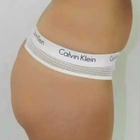

Full-side view
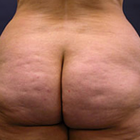
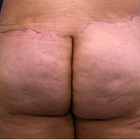
Front view

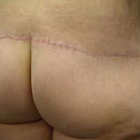
Front view
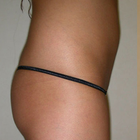

Half-side view

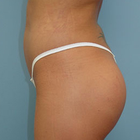
Half-side view
WHY US?
At Medijump, we're making medical easy. You can search, compare, discuss, and book your medical all in one place. We open the door to the best medical providers worldwide, saving you time and energy along the way, and it's all for FREE, no hidden fees, and no price markups guaranteed. So what are you waiting for?

Free

Best Price

Widest Selection

Risk-Free
What you need to know about Butt Lift in Greece

Before you undergo butt lift surgery, you may have loose, saggy, and droopy buttocks making you look and feel older than your age. With butt lift surgery, you can get more rounded and toned buttocks since it reshapes your body contour, making you look younger than your age.
The Butt lift is a surgical procedure to remove unwanted fat or loose skin from the buttocks in order to help reshape them. Implants and Liposuction are often involved and incisions using a cannula can be applied to the crease of the buttocks so there is no visibility of scarring. Butt Lifts are common among those who have lost lots of weight and consequently, the shape of their buttocks has changed. It may be performed as part of a Tummy Tuck (belt lipectomy) or lower body lift to contour the buttocks, groin, thighs, and abdomen. (Another option is to have a Brazilian Butt Lift).
A buttock lift alone won't add any volume to the buttocks. But sometimes, a buttock lift is combined with an augmentation procedure to alter the shape or size of the buttocks with implants or fat grafts. By removing excess skin and fat from your buttocks, a buttock lift can give you a more toned appearance.
What is the cost of Butt Lift in Greece?
When estimating the price of a Butt Lift in Greece, it's vital to acknowledge that the outlay incorporates numerous diverse elements. Initially, the competencies and reputation of the surgeon executing the process have a significant impact on the determination of the cost. Surgeons who are highly skilled and have an excellent reputation often demand higher fees for their proficiency. The surgeon's expertise directly influences the procedure's success and safety, making it a substantial part of the overall expense.
Besides the fee of the surgeon, the expenditure of the medical facility, costs of anesthesia, and clinical tests contribute significantly to the overall expense. These costs can fluctuate dramatically based on the procedure's intricacy and the location where the operation is taking place. Also worthy of consideration is the expense associated with preoperative lab work, post-operative care, and any necessary medication or medical supplies needed during the recovery phase.
What does a Butt Lift Procedure Involve?
Butt lift is most often carried out under general anesthesia. An incision is applied along your lower back from one butt to the other. The excessive skin and adipose tissue are removed through this incision lifting your butts up. The rest of the fat is redistributed and the skin is tightened. Incisions are stitched and surgical tapes are used to provide additional support. Bandages are applied to the wound. Drainage tubes are inserted to remove excess fluid and blood.
Should you get a Butt Lift?
Butt lifts work by removing excess skin and adipose tissue from the site and repositioning the leftover skin and adipocytes. Redistribution of fat and skin changes the contour of your buttocks, making them no longer appear saggy and droopy. Also, it should not be confused with Brazilian Butt Lift which is an entirely different procedure.
Not everyone is a good candidate for butt lift surgery. Discuss your medical history with MyMediTravel, any prescription drugs you are taking, the desired results you hope for, the pros and cons of the surgery, cost, recovery time, risks, success rate or any other query which comes in your mind regarding this procedure.
You might consider a buttock lift if you:
- Have lost a significant amount of weight and your weight has been stable for at least 6 to 12 months.
- are overweight and haven't been able to lose a significant amount of weight through physical activity and changes in your diet.
- Have a normal weight, but want a dramatic improvement in the appearance of your lower body.
- Have a normal weight, but your skin won't contract after liposuction due to poor elasticity related to aging.
How Long Should I Stay in Greece for a Butt Lift Procedure?
Butt lift is a 2-5 hours long surgery and will require at least 1-2 nights stay in the hospital, although in some cases you can be discharged on the same day. Even after being discharged, you have to stay in Greece for at least 10-14 days for follow-ups. During this period, your health is strictly monitored, you are given medicines to help you with pain and to prevent infections. Stitches are removed after 7-10 days. If everything is fine during this time, you are free to travel home.
What's the Recovery Time for Butt Lift Procedures in Greece?
In total, 4-6 weeks of recovery time is required before getting back to your normal routine, so avoid excessive and unnecessary activities during this period. There will be bruising and swelling around the operated area which subsides gradually after a few days. You can start office work 10 days after post-op if your job does not require long periods of sitting time - if it does, just be sure to move around as much as possible.
The recovery time can vary according to your health, environment, and daily routine. You can start driving after 4-6 weeks but do not travel long distances as it will require you to sit for too long. Scars take much longer to fade away. In 4-6 months, you should expect to have fully recovered.
What sort of Aftercare is Required for Butt Lift Procedures in Greece?
The following are some points which should be considered for your aftercare:
- Quit smoking and drinking because tobacco and alcohol slow down blood circulation hence slowing down your recovery.
- Avoid sitting for long periods for at least a week after the procedure.
- Avoid such positions which can put a strain on your scars. It can re-open your wound.
- Change your dressing regularly to avoid infection.
- Take prescribed pain killers and antibiotics to relieve pain and prevent infection.
- Wear some supporting garments for the early few weeks.
- Use scar cream to massage your scars. It will speed up their fading.
- Do not lift children and heavy objects.
- Avoid climbing up the stairs.
- Avoid exercise, gym, swimming, and other strenuous activities for several weeks.
- Abstain from sexual activity until allowed by your doctor.
- Start taking small steps the next day after going through the surgery to prevent blood clot formation.
What's the Success Rate of Butt Lift Procedures in Greece?
Butt lift is a highly successful and long-lasting procedure. An ideal weight should be maintained to keep the results of your surgery consistent. It is found to be far more successful than the Brazilian butt lift surgery, which has lead to patient deaths - unlike the Butt Lift surgery, which has not recorded any fatalities. The vast majority of patients are extremely happy with not only the results of the procedure but with the entire process leading up to and following the surgery.
Are there Alternatives to Butt Lift Procedures in Greece?
The operation should never be the foremost option and consider all other options first. Following are some non-surgical alternatives to butt lift surgery:
- Fillers: these are getting a lot of fame these days. Fillers such as Restylane, Sculptra, etc. are injected into your buttocks, making them look plump and lifted without surgery. They induce collagen production in your buttocks. Sculptra is found to be most effective for this purpose. It is advantageous as it has no downtime.
- Hydrogel buttock shots: hydrogel injections give your butt a rounded contour along with a lift. But they are not usually recommended.
- Liposuction: in this method, adipocytes are removed from your butts through injections to give them a more toned appearance. This fat can be injected at other places of your body if required.
- Exercise: some exercises, such as squats will help to change the shape of your butts, tighten them, and lift them up without surgery.
What Should You Expect Before and After the Procedure
Prior to the Butt Lift at Greece, be prepared for a comprehensive consultation phase. The medical expert will compile an exhaustive medical history, carry out a physical check-up, and converse about your aspirations and anticipations related to the procedure. Transparency regarding your health status and expectations during these consultations is of utmost importance. Some lab tests and medical imaging may also be necessary to examine your general health and determine your eligibility for the procedure. Subject to your health conditions and personal circumstances, guidelines for the pre-procedure phase will be communicated to you. This might involve guidelines regarding food intake, hydration, adjustments in medications, and consumption of substances like tobacco and alcohol.
Another critical element before the procedure is mental readiness. Naturally, feelings of worry or apprehension may arise before the procedure. Engaging in open and candid discussions with your medical expert regarding your apprehensions and expectations can help mitigate such feelings. Instructions about the logistics on the day of the procedure, such as the time to report at the clinic, appropriate attire, and arrangements for travel, will also be shared with you.
Upon completion of the Butt Lift, your condition will be closely observed in a post-operative area until the effects of anesthesia subside. Feeling some discomfort, experiencing swelling, and noticing bruising after the procedure is quite normal. Medications for managing pain and reducing swelling, as well as preventing infection, will be administered. Essential post-procedure care guidelines will be provided to you, which should be strictly adhered to ensure a seamless recovery process. These guidelines usually include instructions for wound care, medication routines, restrictions on activities, and what symptoms of complications to be vigilant about.
What are Potential Risks of Butt Lift?
Just like any operative process, Butt Lift also has inherent risks involved. The degree of potential risks can drastically differ from person to person based on their health conditions, techniques employed during the procedure, and the expertise of the surgeon. Usual risks linked to this procedure encompass adverse reactions to anesthesia, bleeding, infections, and variations in skin feeling. It is crucial to understand that the occurrence of such risks is generally low, and a majority can be lessened by adhering to the post-operative guidelines given by the healthcare professional. For instance, prevention of infection can be achieved through maintaining suitable post-operative wound hygiene, whereas the adverse effects of anesthesia can be minimized through a detailed discussion of your past medical records with your healthcare professional ahead of the surgery.
Although less usual, more critical complications can include a situation such as a fat embolism, which is the blockage of a blood vessel due to a piece of fat breaking away, affecting cardiac activity or leading to a pulmonary embolism. Asymmetry could also occur, where one buttock varies in size or form than the other. However, this is typically associated with the technique used and pre-existing body conditions rather than a specific risk associated with the procedure. If dissatisfaction arises with the aesthetic result, another surgical intervention might be necessary.
Whilst the information presented here has been accurately sourced and verified by a medical professional for its accuracy, it is still advised to consult with your doctor before pursuing a medical treatment at one of the listed medical providers
No Time?
Tell us what you're looking for and we'll reachout to the top clinics all at once
Enquire Now

Popular Procedures in Greece
Prices Start From $113

Prices Start From $208

Prices Start From $931

Prices Start From $76

Recommended Medical Centers in Greece for procedures similar to Butt Lift

- Interpreter services
- Translation service
- Religious facilities
- Medical records transfer
- Medical travel insurance
- Health insurance coordination
- TV in the room
- Safe in the room
- Phone in the room
- Private rooms for patients available

- Interpreter services
- Translation service
- Religious facilities
- Medical records transfer
- Medical travel insurance
- Health insurance coordination
- TV in the room
- Safe in the room
- Phone in the room
- Private rooms for patients available

- Interpreter services
- Translation service
- Religious facilities
- Medical records transfer
- Medical travel insurance
- Health insurance coordination
- TV in the room
- Safe in the room
- Phone in the room
- Private rooms for patients available

- Interpreter services
- Translation service
- Religious facilities
- Medical records transfer
- Medical travel insurance
- Health insurance coordination
- TV in the room
- Safe in the room
- Phone in the room
- Private rooms for patients available

- Interpreter services
- Translation service
- Religious facilities
- Medical records transfer
- Medical travel insurance
- Health insurance coordination
- TV in the room
- Safe in the room
- Phone in the room
- Private rooms for patients available

- Interpreter services
- Translation service
- Religious facilities
- Medical records transfer
- Medical travel insurance
- Health insurance coordination
- TV in the room
- Safe in the room
- Phone in the room
- Private rooms for patients available

- Interpreter services
- Translation service
- Religious facilities
- Medical records transfer
- Medical travel insurance
- Health insurance coordination
- TV in the room
- Safe in the room
- Phone in the room
- Private rooms for patients available

- Interpreter services
- Translation service
- Religious facilities
- Medical records transfer
- Medical travel insurance
- Health insurance coordination
- TV in the room
- Safe in the room
- Phone in the room
- Private rooms for patients available

- Interpreter services
- Translation service
- Religious facilities
- Medical records transfer
- Medical travel insurance
- Health insurance coordination
- TV in the room
- Safe in the room
- Phone in the room
- Private rooms for patients available

- Interpreter services
- Translation service
- Religious facilities
- Medical records transfer
- Medical travel insurance
- Health insurance coordination
- TV in the room
- Safe in the room
- Phone in the room
- Private rooms for patients available
Butt Lift in and around Greece
About Greece
Located at the very bottom of the Balkan Peninsula, Greece is a mesmerizing blend of sun-drenched islands and historical marvels. Boasting approximately 2,000 islands, an impressive 170 among them are inhabited and teeming with life. Greece's geographical charm has been nowhere short of a magnet to travelling enthusiasts, pulling in a spectacular count of over 24 million wanderlust-struck visitors each passing year.
Greece turns out to be a preferred hotspot for a particular category of globe-trotters. Travelers come from the farthest stretches of the world seeking its array of top-tier beaches to soak up the sun, the warm ocean for an invigorating dip, the array of ancient relics for their history fix, and to immerse into an engaging culture. The universal allure of Greece, seemingly, never ceases to captivate the hearts of explorers worldwide.
The upward shift in Greece's status as a medical tourism hub has been quite noticeable in recent years. Medical tourists are being increasingly drawn to the country, a relative newcomer in the industry, due to a myriad of reasons. One of the core attractions is its health care system, which holds a high rank on the global scale. However, in spite of boasting of world-class standards, the medical services in Greece are pleasantly affordable. In fact, it flaunts some of the most pocket-friendly medical care prices across Europe and even globally.
The medical services that Greece provides run a comprehensive gamut. Cosmetic surgery and fertility treatments are particularly sought-after medical services, favoured by numerous medical tourists. Orthopedics also sees a consistent flow of patients, along with cardiac care procedures. The well-established oral and dental sector in Greece is another popular draw for people wanting to combine their medical treatments with a relaxing vacation. The availability of such diverse, high quality, yet affordable healthcare options certainly puts Greece on the map as a promising medical tourism destination.
Popular Parts of Greece
The captivating city of Athens, the crown jewel of Greece, presents a dazzling blend of antiquated splendor, enchanting landscapes, and a vibrant modern core. The capital prides itself in harboring an unparalleled assortment of Greek ruins and antiques. Prime among them is the Acropolis, an iconic ancient citadel perched on a rocky outcrop. The Greek Agora, a central public space in ancient Greek city-states, adds an extra charm to Athens’ archaeological grandeur.
On the other hand, the striking island of Santorini stands as another touristic magnet in Greece. Admired far and wide, it carries the reputation of being the most breathtaking island in the country. The enormous allure of Santorini with its distinctive architecture, caldera views, and famous sunsets, keeps it perennially embedded in the bucket lists of travelers worldwide. From the captivating capital of Athens to the charming Santorini, Greece exhibits alluring facets that are truly hard to resist.
It is best known for its unique landscape and cliff-top towns. While Santorini is the most spectacular, Mykonos is the most glamorous. It is noted for its classy seafood restaurants and boutique hotels. Some of the most famous attractions in Mykonos, besides its beaches, are Paraportiani and Little Venice.
Weather and Climate in Greece
Set on the Mediterranean, Greece experiences a climate that is typically balmy and sun-soaked throughout the year with a cycle of four distinct seasons. Summers, spanning June to August, bring about warm and agreeable temperatures. This peak season draws in a large number of tourists, making it an ideal time to take a dive into the azure seas.
As September ushers in the fall season, the weather across Greece turns cooler but largely stays clear. On the flip side, winters starting from December to February reveal a different picture. Coastal cities remain warm but the country's northern regions experience significantly lower temperatures, occasionally even witnessing snowfall.
As March marks the arrival of spring, the weather begins to warm up again, though evenings can retain a cool nip in the air. Each season has its unique charm and adds to the overall allure of Greece.
Getting around in Greece
Athens International Airport holds the distinction of being the largest and busiest hub for international air travel in Greece. This is typically the point of arrival and departure for a majority of international tourists exploring Greece. The extensive network of this airport caters to both domestic and international flights, connecting many global cities like Dubai, London, Moscow, and New York to the heart of Greece.
Among affordable means of transport, the ferry services stand out, particularly for travelling among the islands. They run on a frequent basis, with services especially ramped up during the sun-soaked summer months. For land travel, buses come across as largely comfortable and hassle-free, although the network is somewhat limited.
For intra-city travel within major Greek metropolises, the extensive network of buses and trolleybuses prove to be reliable options. Particularly in Athens, the capital city, the metro and tram systems offer additional efficient and cost-effective ways to explore the local attractions. Additionally, taxis, which are conveniently available quite everywhere, turn out to be extremely pocket-friendly. Whether hopping between islands or navigating city streets, Greece offers a range of transportation options to suit the needs and budgets of different travelers.
Tourist Visas in Greece
Greece is part of the Schengen Area, which means that citizens of most countries can travel to Greece without a visa for up to 90 days within a 180-day period.
Citizens of the following countries do not need a visa to visit Greece:
- All European Union citizens
- Citizens of Andorra, Iceland, Liechtenstein, Monaco, Norway, San Marino, Switzerland, and Vatican City
- Citizens of Australia, Canada, Japan, New Zealand, the United Kingdom, and the United States
Citizens of all other countries need to obtain a visa to visit Greece.
You can apply for a Greek tourist visa at the Greek embassy or consulate in your home country. The visa application process can vary depending on the country where you are applying, but there are some general requirements that all applicants must meet, such as having a valid passport, proof of onward travel, and proof of financial means.
Additional Information
- Local Currency: The official currency in Greece is the euro (€). €0.94 is equivalent to approximately US$1.
- Money & Payments: Reliable ATMs can be found easily in all cities and towns, particularly on the mainland. Major credit cards, such as MasterCard and Visa, are widely accepted. Tipping is expected in most places, usually around 5% to 10%. Make sure to tip in cash.
- Local Language: The most widely spoken language in Greece is Greek, which is the official language of the country. Most people in tourist areas and the younger generations can speak and understand some English, German, French, or Italian.
- Local Culture and Religion: Greek Orthodox Church is the largest religion in Greece, representing 90% of the total population. There are also small communities of Muslim, Roman Catholic, and Jewish.
- Public holidays: The most celebrated holidays in Greece include Easter, Apokreas (Carnival Season), and Saint’s day of the Virgin Mary, Ohi Day, Independence Day, and Christmas Day.
Popular Searches
- Plastic Surgery in Thailand
- Dental Implants in Thailand
- Hair Transplant in Thailand
- Breast Augmentation Thailand
- Gastric Sleeve in Thailand
- Gender Reassignment Surgery in Thailand
- Laser Hair Removal in Bangkok
- Botox in Bangkok
- Dermatology in Bangkok
- Breast Augmentation in Bangkok
- Coolsculpting in Bangkok
- Veneers in Turkey
- Hair Transplant in Turkey
- Rhinoplasty in Turkey
- Stem Cell Therapy in Mexico
- Rhinoplasty in Mexico
- Liposuction in Mexico
- Coolsculpting in Tijuana
- Rhinoplasty in Korea
- Scar Removal in Korea
- Gastric Sleeve in Turkey
- Bone Marrow Transplant in India
- Invisalign in Malaysia
- Plastic Surgery in the Dominican Republic
- Tummy Tuck in the Dominican Republic
- Plastic and Cosmetic Surgery in Poland
- Rhinoplasty in Poland
- Hair Implant in Poland
- Dental Implants in Poland
- IVF in Turkey